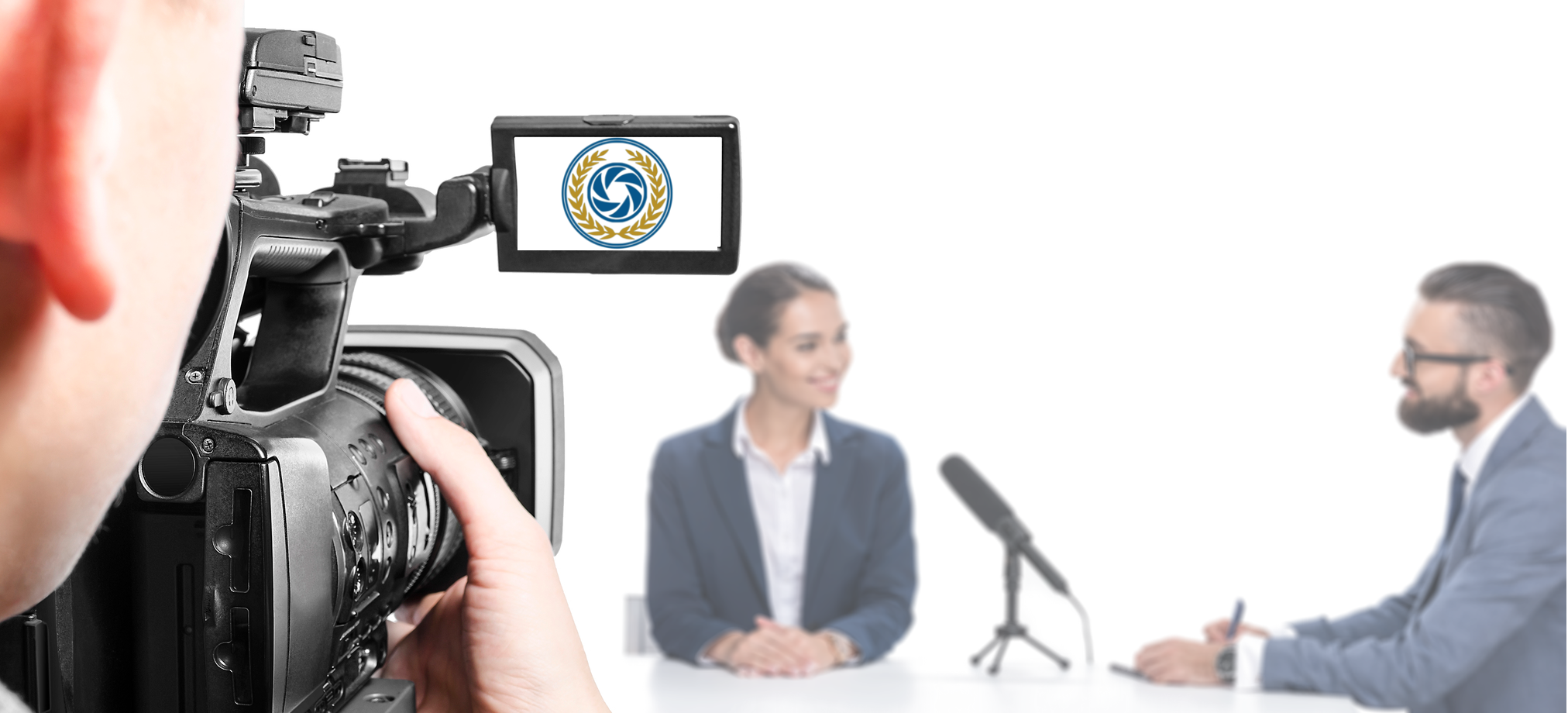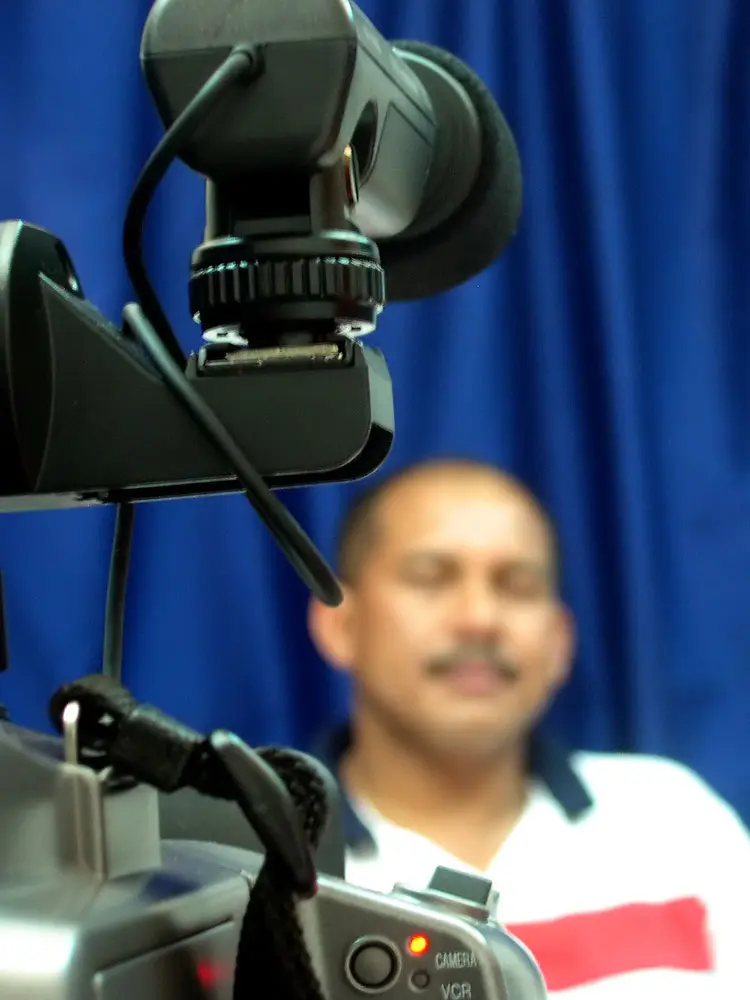The Significance of Legal Video Clip Depositions in Modern Legal Solutions: What You Should Know
Legal video clip depositions have actually become necessary in today's lawful landscape. They offer a multidimensional sight of witness testimonies that traditional transcripts merely can not match. By catching both non-verbal and spoken interaction, these depositions improve the overall understanding of a witness's credibility. Nevertheless, the efficiency of video clip depositions pivots on various variables, consisting of conformity with legal standards and ideal techniques (legal video depositions). Discovering these elements exposes their real importance in modern-day lawful solutions
What Are Legal Video Clip Depositions?
Legal video clip depositions function as a vital tool in the lawsuits procedure. They entail taping witness statements in a video layout, catching both non-verbal and spoken interaction. This technique permits attorneys to document the disposition, expressions, and reactions of witnesses, giving a richer context for the testimony. Commonly performed in a regulated environment, these depositions are led by attorneys who ask questions while a stenotype reporter records the dialogue. The resulting video can be crucial for test preparation, as it allows legal representatives to analyze the credibility of witnesses and improve their techniques. Additionally, legal video depositions can be utilized in various lawful contexts, varying from civil disputes to criminal situations. The auditory and visual components of video clip depositions boost the discussion of evidence, making it an essential element in the modern lawful landscape. In general, they add significantly to the effectiveness and effectiveness of lawful process.

Benefits of Video Clip Depositions Over Conventional Techniques
Video depositions offer various advantages compared to traditional approaches of taking witness testimonies. One substantial advantage is the capability to catch both audio and aesthetic components, offering a much more extensive document of the witness's declarations. This dual layout improves clearness and allows lawful experts to reference specific subtleties throughout test preparation. Furthermore, video depositions facilitate remote participation, making it simpler for witnesses who might be not available for in-person appearances because of geographical constraints or health and wellness issues.Moreover, video depositions can quicken the general deposition process, lowering the time and costs linked with travel and logistics. They likewise improve availability, as recorded depositions can be easily shared among lawful groups and referenced at any time. This convenience adds to better case management and prep work. Generally, video clip depositions represent a modern, efficient method to collecting witness statements, straightening with the progressing needs of the lawful career.
The Duty of Body Language and Tone in Testimonies

In lawful video depositions, body language and tone play vital functions in communicating a witness's reputation and credibility. Nonverbal cues can supply insights into a witness's psychological state, affecting exactly how their testimony is viewed. Comprehending the effect of these aspects is vital for jurors and lawyers alike when evaluating the integrity of a testimony.
Nonverbal Interaction Insights
While spoken communication is usually stressed in lawful testimonies, nonverbal cues such as body movement and tone play a necessary function in conveying reputation and emotion. Onlookers of depositions might keep in mind that a witness's posture, gestures, and faces can considerably influence assumptions of integrity. Consistent eye get in touch with may signal confidence, while avoiding look might suggest dishonesty or discomfort. In a similar way, the tone of voice-- its volume, speed, and pitch-- can give feelings of sincerity or unpredictability. Lawyers have to be in harmony with these nonverbal signals, as they typically provide vital context that matches talked words. Recognizing these nuances can boost the efficiency of depositions and affect the outcome of legal process.
Psychological Tone Influence
The psychological tone shared during lawful testaments significantly impacts how a witness is regarded. Body movement, singing inflections, and face expressions play essential roles in shaping the narrative of a testimony. A witness exhibiting self-confidence via constant eye call and a calm tone can instill a feeling of dependability and interaction. Conversely, indications of anxiety, such as fidgeting or an unstable voice, might result in suspicion concerning their account. The nuances of emotional expression can affect the analysis of facts, making it vital for attorneys to acknowledge these signs. In video clip depositions, the acoustic and aesthetic components combine, highlighting the value of emotional tone in conveying sincerity and reliability within the lawful procedure.
Trustworthiness and Reliability
A vital element in developing credibility and credibility throughout testaments hinges on the witness's body movement and intonation. Viewers often count on non-verbal hints-- such as eye get in touch with, pose, and motions-- to examine a witness's genuineness. For example, a witness that keeps eye call and presents open body movement might be regarded as even more straightforward and reliable than one who avoids eye contact or appears blocked. Additionally, intonation plays an essential duty; a constant, tranquil tone can strengthen the reliability of the testimony, while variations in pitch or quantity may raise uncertainties. Eventually, the combination of body movement and singing tone considerably influences how a witness's declarations are gotten and interpreted in a lawful context.
Finest Practices for Conducting Video Clip Depositions
Performing video depositions requires mindful planning and implementation to ensure a clear and effective presentation of testimony. It is essential to pick a peaceful, well-lit area to reduce distractions and safe optimal video clip quality. The devices should be checked ahead of time, consisting of video cameras, microphones, and lights, to prevent technological concerns throughout the deposition.Next, parties included need to assess the style and procedures in advance, making certain that everyone understands their duties. The deponent ought to be briefed on the process, consisting of how to react plainly and concisely.Additionally, maintaining a specialist behavior throughout the session is vital. This consists of avoiding speaking over each other and verifying that all inquiries are routed appropriately. Lastly, it is important to record the deposition in a format that allows for simple playback and evaluation, maintaining the honesty of the testament for future use.
Legal Considerations and Compliance Issues
Exactly how do lawful factors to consider and conformity concerns influence the performance of video clip depositions? Lawyers need to browse an intricate landscape of guidelines, making certain that video clip depositions stick to administrative policies and requirements. Compliance with laws concerning privacy, consent, and recording methods is essential. Obtaining specific approval from all celebrations involved is essential to stay clear of lawful repercussions.Additionally, the admissibility why not try here of video clip evidence in court can pivot on conformity with procedural needs. Making sure that the equipment made use of satisfies technical criteria is likewise important, as low quality can undermine the deposition's reliability.Moreover, lawyers should be aware of any type of specific state legislations that govern video depositions, as these can differ considerably. Failure to address these factors to consider can not only endanger the integrity of the deposition yet also influence the general instance method, ultimately influencing the client's lawful outcomes.
Just How Video Depositions Influence Jury Perception
While video clip depositions can serve as powerful devices in legal process, their impact on jury assumption is considerable. The auditory and aesthetic elements of video clip recordings offer jurors with an extra extensive understanding of witness temperament, credibility, and emotional feedbacks. This multimedia strategy can improve the jurors' capacity to assess the dependability of testament compared to standard text-based transcripts.Moreover, video depositions permit jurors to observe body language, tone of voice, and faces, every one of which can impact their interpretation of the witness's statements. The existence of a witness on display can humanize them, cultivating empathy and link, which might persuade jurors' viewpoints. On the other hand, a witness that shows up evasive or untrustworthy on video may cause unfavorable understandings that influence a jury's decision. Ultimately, the vibrant nature of video depositions plays a crucial function fit exactly how jurors interpret proof and reach their verdicts.
The Future of Video Clip Depositions in Legal Method
As developments in innovation proceed to improve the legal landscape, the future of video depositions is positioned for considerable evolution. Technologies such as expert system, online truth, and boosted video conferencing devices are expected to improve the deposition procedure and improve accessibility. Attorneys might use AI-driven analytics to evaluate witness integrity and situation stamina more effectively.Moreover, the combination of digital reality might permit courts to experience immersive simulations of depositions, giving much deeper context and understanding. Additionally, the trend towards remote depositions is likely to persist, supplying greater adaptability for attorneys and customers alike.As remote work comes to be increasingly normalized, video depositions will likely become basic practice, minimizing prices and time restrictions connected with conventional techniques. In general, these technical advancements promise to boost the efficiency, efficiency, and accessibility of video clip depositions in lawful practice, ultimately changing exactly how lawyers prepare for trial.
Frequently Asked Inquiries
Just How Much Do Legal Video Clip Depositions Typically Cost?

Can Video Clip Depositions Be Made Use Of in Any Kind Of Kind of Case?
Video clip depositions can be made use of in different sorts of situations, including civil, criminal, and family members regulation. Their adaptability permits attorneys to present witness testaments properly, adjusting to the particular needs of various lawful circumstances.
What Tools Is Needed for a Video Clip Deposition?
To carry out a video clip deposition, essential tools includes a top quality video camera, microphone, lights, and a reputable recording gadget. In addition, a computer with modifying software application might be necessary for post-production and formatting the last video clip.
For how long Does a Typical Video Deposition Last?
A common video deposition lasts between 2 to 4 hours, depending upon the intricacy of the case and the variety of questions posed. Extensive sessions might take place, but breaks are normally integrated for individual convenience.

Are Video Depositions Admissible in Court?
Video depositions are generally admissible in court, offered they adhere to legal requirements and policies of evidence. Their usage improves quality and maintains witness statement, aiding in the judicial procedure during trials and hearings. Legal video depositions have actually become necessary in today's lawful landscape. Furthermore, legal video depositions can be utilized in numerous lawful contexts, varying from civil conflicts to criminal situations. Additionally, video clip depositions assist in remote involvement, making it simpler for witnesses who go now might be not available for in-person appearances due to geographical restraints or health and wellness issues.Moreover, video depositions can quicken the general deposition process, reducing the time and prices connected with traveling and logistics. Making sure that the equipment made use that site of satisfies technical criteria is likewise vital, as bad quality can threaten the deposition's reliability.Moreover, attorneys have to be conscious of any certain state laws that control video depositions, as these can differ significantly. In addition, the trend towards remote depositions is likely to continue, offering higher flexibility for clients and lawyers alike.As remote work ends up being increasingly stabilized, video clip depositions will likely end up being standard method, lowering costs and time restraints associated with standard approaches.